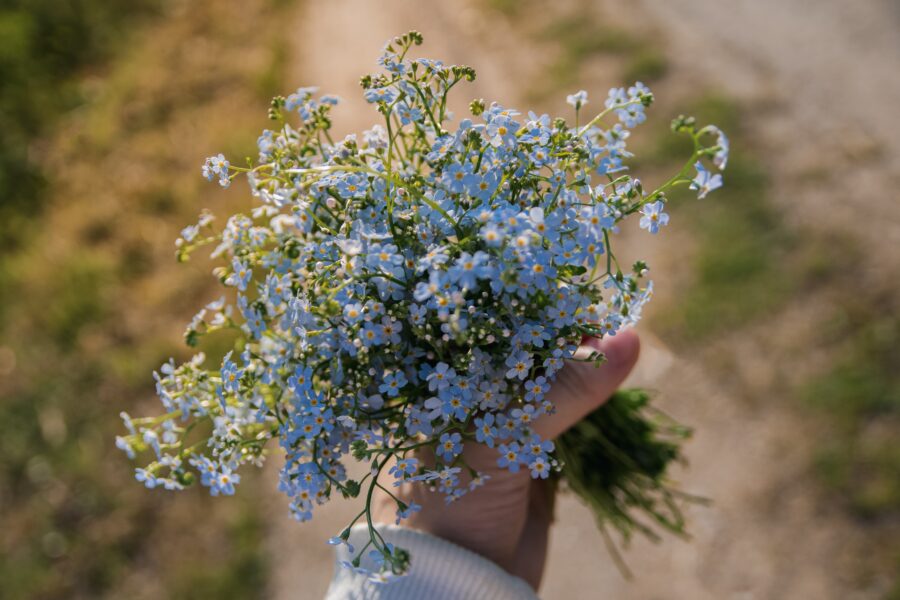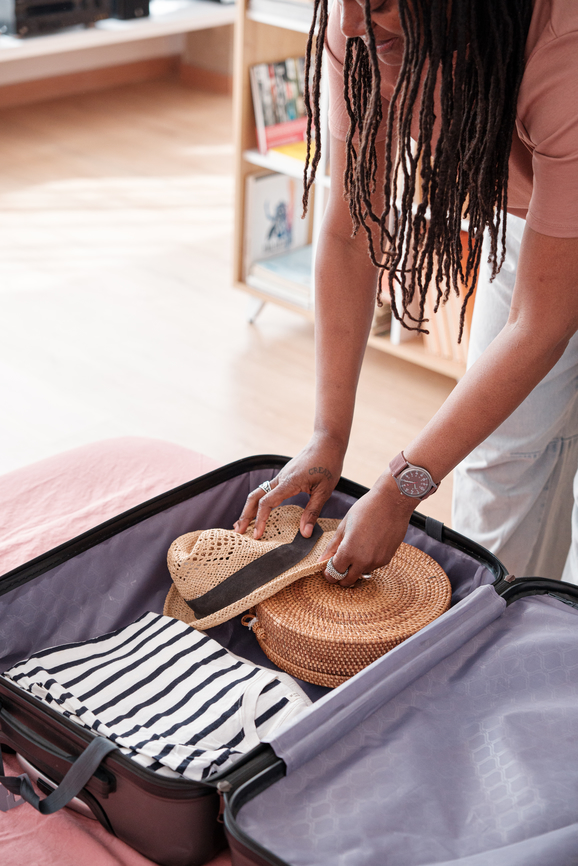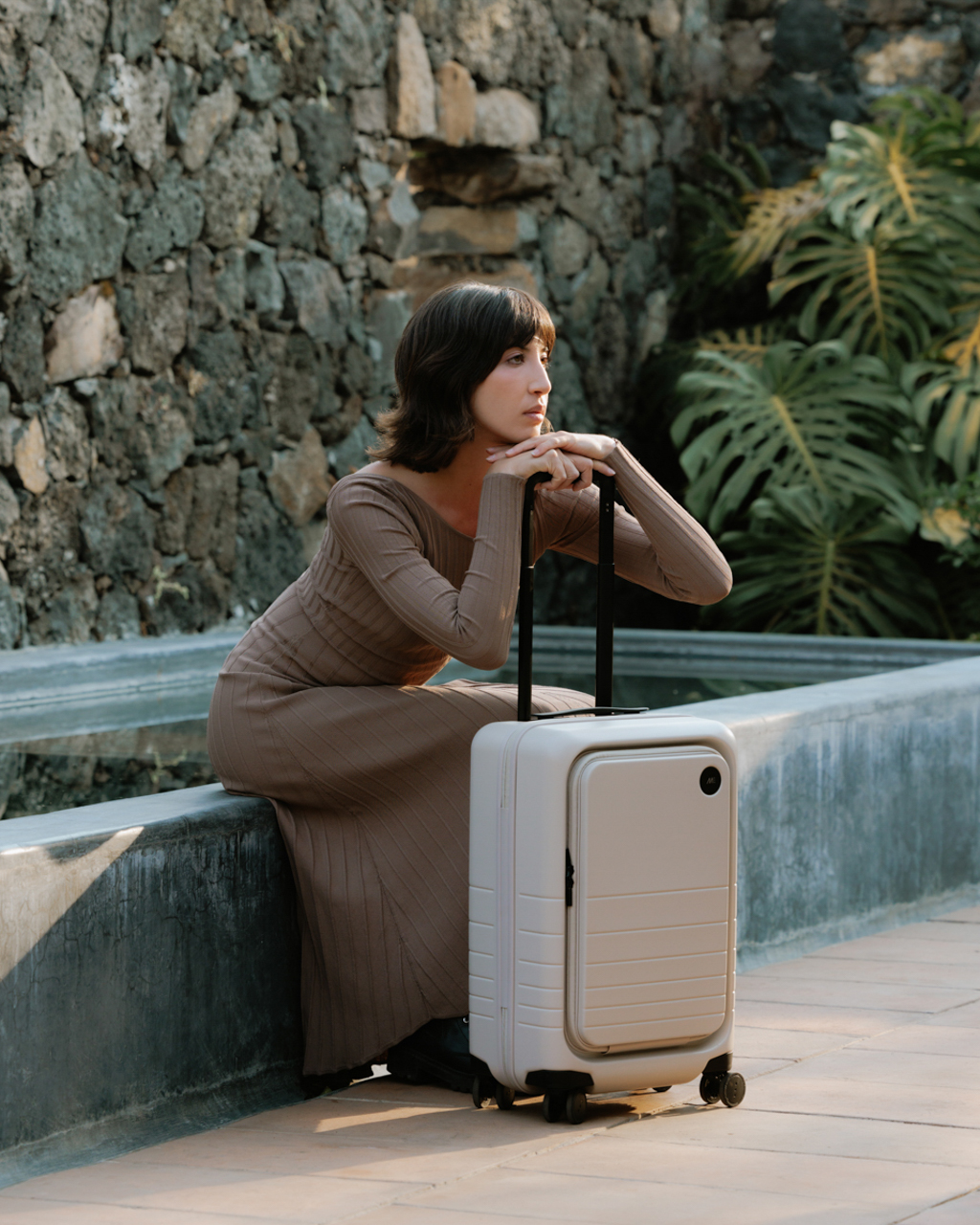
Reader Essay: Forget Me Nots
I’ve felt this underlying existential dread in almost all my romantic relationships. What happens when I leave? I’ve lived in 13 different places since I turned 18, constantly on the road, searching for ways to rewrite who I thought I was and who I wanted to become.
The dictionary would define me as a nomad or a person who roams about having no fixed residence, moving from place to place seasonally. The constant change and life without a plan is the only time I’ve felt present. Aware of my surroundings. Not trying to be something everyone else expects. Traveling isn’t a result of escaping all my problems; it’s a way to get closer to everything I never knew was there.
“Traveling isn’t a result of escaping all my problems; it’s a way to get closer to everything I never knew was there.”
Most people thought it was a phase — a semester abroad in Florence or a year teaching English in Malaysia. To me, it was always more than that. Outside of an innate need for travel, education, and learning about new cultures, there are these moments of freedom where I meet like-minded travelers staying up late playing spoons with a bottle of local white wine. I’m reminded of what it was like to be a kid again. Lying on the grass, re-wearing the same green floral dress for the ninth night in a row because my whole life has to fit inside a backpack, and it’s simple. After trekking 13 miles through the mountains earlier that day, being in the valley looking up at the sunset behind what we scaled and descended brings this wave of warmth, joy, and longing.
John Green once wrote, “To be alive is to be missing.” By living this lifestyle, there are people around the world that I constantly miss — both friends and romantic partners. Sometimes the missing gets heavy and hard — shooting stars stuck in time underneath the same infinite sky.
“A screen has mirrored everything I couldn’t be there for, from family holidays to friends’ engagements.”
A screen has mirrored everything I couldn’t be there for, from family holidays to friends’ engagements. When my long-time neighbor turned 100, his birthday gift was nothing more than an idea in my head. These are the significant events and milestones that expats have become accustomed to. But nobody talks about the unspoken truth. The intangible fear of being unable to spend time with the people we love as they age, as milestones pass, and moments become nothing more than fleeting.
I think back to this moment with my ex of five years, rolling around our colorful, patterned fringe carpet with our elderly pit bull foster dog, Walter. We had just moved into our first apartment together, and Walter made us into a little family. On days when it’s hard to remember why I left, I think of those memories. Everything that could have been but was doomed from the start. I moved from California to Connecticut to be with him after a year of long distance. I felt responsible for the distance, mostly because I was traveling during that time. After six months, I started to lose myself in the nine-to-five suburbs. I wanted to move to New Zealand for a year to work on an animal sanctuary and he was only comfortable going for a week or two. We kept holding each other back because we were best friends who wanted the most for one another but couldn’t come to terms with the fact that meant not being together.
What hurts the most is others’ reliance on the belief that I’ll get it out of my system. Maybe I love traveling and moving, but soon I’ll be ready to settle down. To have the marriage, family, and steady life that others want for me, or what I perceive they desire for my life. There is immense pressure, especially in a society built around the idea of a woman’s inherent need to raise children and be the family’s caretaker.
“I don’t feel alive when choosing a life because someone else wants it for me. I’d be missing myself then.”
I don’t feel alive when choosing a life because someone else wants it for me. Then I’d be missing myself.
Most of my relationships have started or ended with long distance. Adding songs to shared playlists, sending video clips from whatever app allowed me to communicate internationally (Marco Polo, etc.), writing letters, and holding on to ideas of shared experiences in the future became my love language. It still is — even with friends and family. With working holiday visas, short-term job contracts, and other restrictions from traveling abroad, the distance always seems to be temporary, but what if it wasn’t? If being away permanently was what I wanted, who would stay? Why would the relationship be worth it?
These doubts have led to missed connections and a lack of understanding rooted in my insecure attachment style. For others, my moves have led to resentment, and at times, I have felt pressure to adopt a life that they wanted for me. The tension between these positions plays out like a back-and-forth game of ping-pong in the dark. Yet, without these experiences and the trials of love, I wouldn’t have known what it’s like to be with me. What it’s like to really be missing.
Of course, there’s no way to know which way life will take me, or anyone, really. But ever since I first traveled on my own, volunteering at a local school in Chile with my friends as a sophomore in high school, I knew that this was what I wanted. I realized I could use education to expand others’ opportunities and learn about different cultures and customs in exchange. That was 11 years ago, and that person will always be me — building relationships with others while playing volleyball, painting, and teaching. Those things will never change.
This much I do know:
“I’m so in love with a warm summer in the Swiss Alps: the marmots, moths, tadpoles, mini pine trees, and all the mountain wildflowers.”
I’m so in love with a warm summer in the Swiss Alps: the marmots, moths, tadpoles, mini pine trees, and all the mountain wildflowers. Bright blue butterflies jump from pebble to pebble amongst dirt trails lined with dandelions, buttercups, and forget-me-nots. “Grüezi” and “Ciao” echo below muddy hiking boots. A burning orange sky with light purple dustings of clouds lightens dark wooden chalets with green-painted window shutters, flower sills of red verbena, and wicker tables amongst cobblestone streets.
I’ll go back to where I’m currently living in New Zealand after eating my way through Tokyo and hiking around Europe and remind myself of the slow living there. It’s this that has allowed me a sort of presence that makes moving on and letting go easier. Walking slower to forage chickweed for pesto; watching fantails jumping from birch trees; and spending Saturday mornings in the community garden creating compost with my fellow crunchy volunteers. Soon, there will probably be an itch to meet new people and explore elsewhere, not for any lack on the part of my current relationships or scenery but for everything unknown.
“Sometimes I think these little things might be the only love I’ll be able to hold onto.”
Sometimes I think these little things might be the only love I’ll be able to hold onto. Memories rooting my wanderlust. Today, although it may seem like a way to avoid everything else, forgetting and working in other ways to be farther away from those tiny, sky-blue flowers near river banks and woodlands would be the biggest betrayal for me. So, no, there is never an easy answer, and yes, there will always be people I’ll miss and places that will leave imprinted views forever in my mind. With that, I’ll put on my AirPods, turn on Noah Kahan’s “You’re Gonna Go Far,” and continue to wonder what else exists to explore.
Tess Cimino is a Fulbright Scholar, environmental educator, and freelance travel writer. She studied Journalism and Global Studies at Marist College. Currently living in New Zealand, you can find her baking, composting, and naturally dyeing clothes. Say hi on Instagram!



